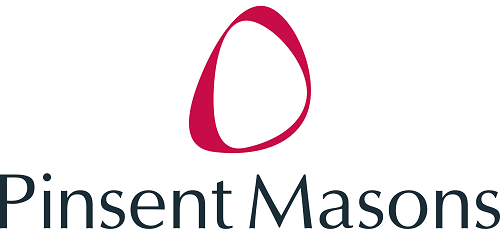Quick search
CTRL+K
Quick search
CTRL+K
posted 1 year ago
Author


There are no results matching your search.
ResetWorkflow is strong with cases going to trial for rest of 2022, into 2023 and 2024. We have a broad range of clients including public sector, transport, advanced manufacturing and financial services. As an example, we continue to act for SKAT, the Danish version of revenue and customs, having been successful in the Court of Appeal, in one of the largest pieces of litigation currently ongoing against over 100 defendants and across multiple countries as well. A one-month preliminary issues trial is due to take place beginning of January 2023 and thereafter a nine-month trial in 2024.
The breadth of our litigation practice, and a recent uptick we have seen in litigation activity, means that we are busy across a wide range of different sectors and types of dispute at the moment. To the extent that it is possible to pinpoint particular sectors, we are particularly busy working for clients in the financial services and public sectors. We operate as a cross-border practice, with matters before fora in England regularly conducted from our Scottish offices and Scottish matters resourced from our English offices. Our civil fraud practice continues to be particularly busy, and we do not see that abating, not least given the seemingly endless ingenuity of fraudsters in developing ways to exploit developing technologies, such as cryptoassets, and difficult economic and social conditions such as Covid-19 and now the cost of living crisis. Our specialist cyber and data privacy litigators also continue to be very busy, with this being driven by the ongoing rise of cyber attacks and the developing data privacy landscape.
We are keeping a particularly close eye on developments in the field of class, group and collective actions and redress, as this is an area in which we do a great deal of work, across practice areas and sectors, and in which businesses – particularly those in consumer-facing markets – are increasingly exposed. For example, in the EU, the new Representative Actions Directive, requiring a levelling-up of mass actions regimes across member states, must be transposed by those states by the end of this year, ready to be implemented by the middle of 2023. Even in the UK, which is not bound by the Directive in light of Brexit, there is ongoing discourse about the effectiveness of available mass actions regimes, with attention at present particularly focused on Scotland, where there is discussion about the potential for the country’s recently-introduced group proceedings procedure to operate on an opt-out, as well as an opt-in, basis. Any procedural changes in these areas will require our lawyers to quickly upskill and adapt; and for many of our clients, they will likely increase the risks of facing mass claims and therefore the support those clients need in mitigating and defending such claims.
Our litigation practice continues to be a very significant area of growth within our firm, and we are focusing our efforts to strengthen our offering via internal promotions and lateral hire activity.
More Locations
There are no results matching your search.
ResetMain Guide
posted 2 years ago
Litigation is the final legal process for settling disputes, but its practice is intertwined with alternative forms of dispute resolution…
There are no results matching your search.
Resetposted 2 years ago
Commercial or mercantile law relates to the interactions, rights and conduct of individuals or businesses engaged in trade and commerce…
posted 2 years ago
Real Estate Law encompasses landowners’ transactions and shares common ground with Property Law – and the myriad ways in which land and property are utilised for personal and business endeavours…
posted 2 years ago
Business crime is a broad term that includes a wide scope of nonviolent criminal offences relating to fraud and illegal financial transactions, often achieved by sophisticated means…
posted 2 years ago
Employment Law governs interactions between employers, employees, unions and government regulations – which often require amendments due to societal changes…
posted 2 years ago
The collective framework known as Corporate Law governs the rights, conduct and relations of individuals, companies and organisations doing business…
posted 2 years ago
Litigation is the final legal process for settling disputes, but its practice is intertwined with alternative forms of dispute resolution…
There are no results matching your search.
ResetFind the right Legal Expert for your business
Sign up for the latest legal briefings and news within Global Law Experts’ community, as well as a whole host of features, editorial and conference updates direct to your email inbox.
Naturally you can unsubscribe at any time.
Global Law Experts is dedicated to providing exceptional legal services to clients around the world. With a vast network of highly skilled and experienced lawyers, we are committed to delivering innovative and tailored solutions to meet the diverse needs of our clients in various jurisdictions.